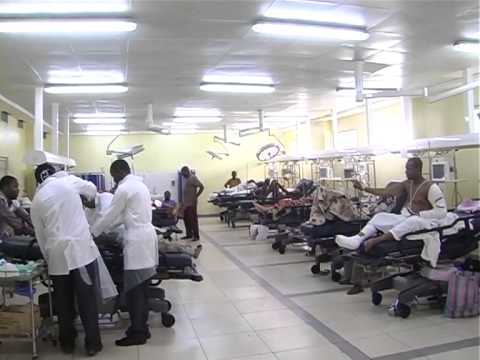“How do you allow a whopping N5 billion in public spending to create projects when you make no provisions or appropriation on how to staff them or give them functional meaning?” Nkem Ilo, chief executive at Public and Private Development Centre [PPDC], lamented in an interview with Dataphyte.
Over the years, construction is a notorious subhead through which corruption has been enabled in the Nigerian contracting and procurement process, and Ms. Ilo, whose organization is a leading voice for transparency and accountability in the Nigerian civic sector, worries that the same fate that had befallen most abandoned projects “invariably awaits” these 20 nominated projects in the 2020 proposed budget.
Ms. Ilo’s position is shared by Segun Elemo, the executive director at Paradigm Leadership Support Initiative [PLSI], who worries as well that unless the “integrity deficit driving budgeting process in the country” is courageously addressed, the “problem of budget padding” will always lead to wasteful investments” such as placement of projects in wrong or unrelated agencies.
“This is what is responsible for the series of uncompleted or abandoned projects in the country, and it is all because of the absence of needs-assessment and political underhand in project allocation,” Mr. Elemo said.
Influential project monitoring reports from bodies like UDEME (PTCIJ), TRACKA (BudgIT) and Value for Money (PLSI) corroborate the concern about government profligacy through multiple spending around single projects spread across or hidden in many agencies that were ultimately not completed or abandoned by MDAs.
20 Nominated Silent Destinations for Hiding Projects
The 2020 proposed budget offers the best illustration of this art of hiding projects in “silent” institutions. In this particular case, whereas the key reference was for health spending, the nominated hidden outlets are 20 non-health institutions otherwise called Ministries, Departments, and Agencies or MDAs.
Source: Premiumtimes

 About N5 billion will go to service major construction works in the nation’s health sector in the 2020 proposed budget, but development experts, working around accountability process in public budgeting, worry that this may come to waste because the projects they are nominated to develop are not captured in the vision of the Ministry of Health, the regulatory institution for health development in the country.
About N5 billion will go to service major construction works in the nation’s health sector in the 2020 proposed budget, but development experts, working around accountability process in public budgeting, worry that this may come to waste because the projects they are nominated to develop are not captured in the vision of the Ministry of Health, the regulatory institution for health development in the country.




